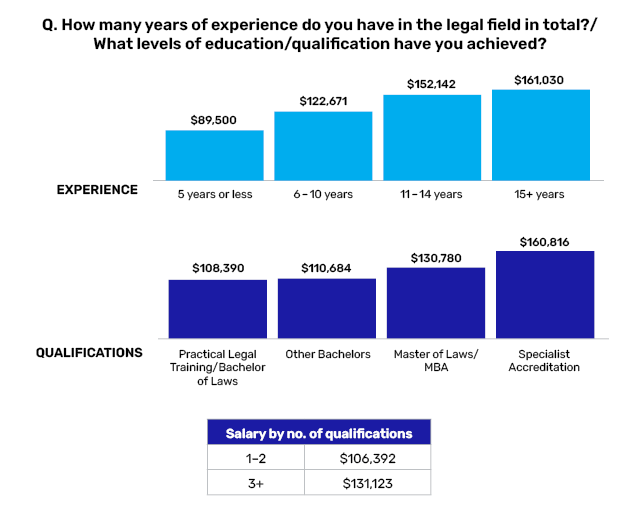YOUR PATHWAY INTO WILLS AND ESTATES
Wills and Estates law, also known as Succession Law, focuses on planning, managing, and distributing a person’s assets after death. It includes drafting wills, administering estates, and resolving disputes over inheritance.
As Australia’s population ages and wealth transfers between generations increase, demand for skilled Wills and Estates lawyers continues to grow. For practising lawyers, this area offers stable work, long-term client relationships, and meaningful impact.
At the College of Law, you can deepen your expertise through postgraduate study in Wills and Estates or Estate Planning, developing practical skills that translate directly to client outcomes.

At-a-glance: How to become a Wills and Estates Lawyer
This page covers:
- What's the difference between Wills and Estates and Estate Planning?
- What does a Wills and Estates lawyer do day-to-day?
- Why should I specialise in Wills and Estates law?
- How postgraduate study can increase your earning potential
- Who you’ll work with
- The human side of succession law
- What skills do I need to succeed in Wills and Estates?
- How do I become a Wills and Estates lawyer?
WHAT'S THE DIFFERENCE BETWEEN WILLS AND ESTATES AND ESTATE PLANNING?
While closely linked, the two areas focus on different stages of a client’s life.
Wills and Estates
Deals with what happens after someone passes away - applying for probate, managing estates, resolving disputes between beneficiaries and managing family provision claims.
Estate Planning
Looks ahead, helping clients structure assets, minimise tax, and protect family wealth through wills, trusts, companies, and superannuation strategies.
In short, Estate Planning is proactive, while Wills and Estates is reactive. Both areas complement each other, but your subject choices may depend on whether you prefer planning for the future or managing outcomes after death.
HOW TO GET INTO WILLS & ESTATES WITH RICK CHRISTIE
Rick Christie shares the practical moves, study choices, and on-the-job insights that shaped his Wills & Estates career.
WHAT DOES A WILLS AND ESTATES LAWYER DO DAY-TO-DAY?
Wills and Estates lawyers advise clients on what happens to their assets after death or loss of capacity. You'll work with individuals, families, executors and trustees to ensure wills are valid, estates are administered correctly and assets are distributed according to the law.
Typical work includes preparing wills, testamentary and discretionary trusts, enduring powers of attorney and other succession documents.
You may also apply for probate or letters of administration, manage estate administration and resolve family provision or inheritance disputes.
Lawyers in this area often work closely with accountants, financial advisers and property lawyers during estate administration. This work is detailed and client-facing, requiring precision, empathy and sound judgement, particularly when emotions are high or disputes arise.
Read more: A day in the life of a Wills and Estates Lawyer: Coffee first, Cat trusts later
WHO WILLS AND ESTATES LAWYERS WORK WITH
Most Wills and Estates lawyers advise individuals, families, executors, and beneficiaries. You’ll also collaborate with accountants, financial planners, and property lawyers to align estate planning with broader financial goals.
The ability to communicate clearly and compassionately is key to managing both the legal and emotional aspects of this work.
THE HUMAN SIDE OF SUCCESSION LAW
Wills and Estates practice often involves clients at emotional points in their lives, such as after a death of a close family member. Empathy and professionalism are essential.
As one College of Law graduate put it:
"There’s nothing more rewarding than when a client tells you that you’ve brought clarity to their issue.”
How Jonathon Naef built a new Wills & Estates team: From family law to final wishes
See how specialist Jonathon Naef grew a successful Wills and Estates team and found long-term career growth in this field.
Read More
WHAT SKILLS DO I NEED TO SUCCEED IN WILLS AND ESTATES?
Success in this area calls for empathy, foresight, attention to detail and strong communication. You’ll need to understand client emotions, anticipate risks, draft precise documents and explain complex issues clearly - qualities that build trust and lead to better client outcomes.
Wills and Estates practice often involves clients at emotional points in their lives, such as after the death of a family member. Empathy and professionalism are essential.
This is a practice area that blends law, psychology and human insight. Clients are often vulnerable, and disputes can be challenging, but the work is deeply rewarding because it directly shapes people’s lives and legacies.
HOW POSTGRADUATE STUDY CAN INCREASE YOUR EARNING POTENTIAL
Postgraduate study doesn’t just deepen your expertise — it can also boost your earning potential.
According to the College of Law Legal Salary Survey 2025, lawyers with postgraduate qualifications or specialist accreditation report average salaries above $130,000 per year, around $20,000 more than those with only an undergraduate qualification.
As demand for skilled succession and estate planning specialists continues to rise, further study can help you strengthen both your expertise and your career trajectory.


I graduated six months ago, and since then I've actively sought to implement what I've learned into my day-to-day practice.
Krystal Bellamy, LLM Graduate - Wills and Estates

Within months of graduating, those hands-on modules became my daily toolkit: clearer client interviews, tighter drafting, and more confident decisions
Krystal Bellamy, LLM Graduate - Wills and Estates
HOW DO I BECOME A WILLS AND ESTATES LAWYER?
A career in Wills and Estates develops through experience, skill and continued learning. Many lawyers start with exposure to estate matters during their law degree or early legal work and then build expertise through postgraduate study.
Your career pathway typically includes:
- Completing a Bachelor of Laws (LLB) or Juris Doctor (JD)
- Undertaking Practical Legal Training (PLT) — the College offers a Wills and Estates elective
- Gaining supervised practice experience in a firm with Wills and Estates work
- Continuing professional learning through postgraduate study
These courses are ideal if you’re exploring succession law or preparing to take on more complex client work.
"More like a mentorship than a degree" – Max Williams, de Groots Wills and Estates Lawyers
Special Counsel Max Williams explains how the College of Law’s practitioner-led LLM in Wills & Estates felt “more like a mentorship,” guiding him from unsure graduate to specialist - and now teaching fellow.
Learn MoreStep 1: Build core skills
Early in your career, short courses and CPD programs can help you strengthen your technical and client skills. The College’s live and on-demand courses are ideal if you want to gain practical knowledge in areas such as:
Step 2: Advance through postgraduate study
As your experience grows, postgraduate qualifications can help you deepen your knowledge and move into more specialised, higher-value matters. The College of Law offers programs designed for practising lawyers who want expertise in succession law:
- Graduate Diploma of Applied Law (Wills and Estates) – a focused, practical option for lawyers seeking specialist skills without committing to a full master’s.
- Master of Laws (Applied Law) majoring in Wills and Estates – for those who want to strengthen expertise in drafting and construing wills, contested probate, elder law, family provision and advanced issues
You can also choose the Master of Laws (Applied Law) majoring in Estate Planning if your focus is on proactive planning. This major covers areas such as tax strategy, superannuation, business succession planning, testamentary trusts and wealth transfer. A popular option is to complete a double major in Wills & Estates and Estate Planning.
All programs are practice-based, online and flexible — designed to fit around your professional life.
Step 3: Broaden your professional scope
With postgraduate qualifications and experience, many lawyers go on to become accredited specialists, trusted advisers to high-net-worth families or senior practitioners leading estate teams.
Each step in your learning journey builds the expertise, confidence and credibility that define successful practitioners in Wills and Estates.
COMPARE YOUR WILLS AND ESTATES AND ESTATE PLANNING STUDY OPTIONS
| CPD Courses | Graduate Diploma of Applied Law (Wills & Estates) | Master of Laws (Applied Law) – Wills & Estates Law | Master of Laws (Applied Law) – Estate Planning | |
|---|---|---|---|---|
| Duration | 1–7 hours per course | 1 year part time | 2 years part time | 2 years part time |
| Intake date / start time | Anytime | Feb, May, Aug, Nov | Feb, May, Aug, Nov | Feb, May, Aug, Nov |
| Investment | From $99 | $4,150 per subject | $4,150 per subject | $4,150 per subject |
| Level of qualification | Non-award (CPD) | Graduate diploma | Master of Laws (LLM) | Master of Laws (LLM) |
| Delivery mode | Online (live & on-demand) | Online | Online | Online |
| Outcomes | CPD points | Graduate diploma qualification | Master of Laws (LLM) | Master of Laws (LLM) |
| Who it’s for | New or practising lawyers | Experienced lawyers building specialist knowledge | Experienced lawyers seeking expertise | Experienced lawyers seeking expertise |
| Practical or interactive training included | Yes | Yes | Yes | Yes |
STEP MEMBERSHIP: YOUR PATH TO SPECIALIST RECOGNITION
The College of Law is an Accredited Education Partner of the Society of Trust and Estate Practitioners (STEP). Completing designated subjects earns credits toward STEP membership — a globally recognised mark of expertise in inheritance and succession planning.
FREQUENTLY ASKED QUESTIONS
With experience, many lawyers move into specialist practice, leadership roles or accredited positions such as trust and estate practitioners (STEP). Continuous learning and client relationships are key to long-term success in this field.
Wills and Estates deals with legal processes after death, such as probate and estate administration. Estate Planning focuses on structuring assets and minimising tax before death.
Not necessarily, but many lawyers do. Wills and Estates focuses on managing and distributing assets, while Estate Planning centres on strategic advice and financial structuring. Together they provide a complete understanding of succession law, enabling you to support clients across both planning and administration stages.
Yes. It’s one of the most consistently busy and people-focused areas of legal practice. Demand is rising due to an ageing population, intergenerational wealth transfer, and the growing need for careful estate planning. Practitioners can work in firms of all sizes, develop niche expertise, or establish their own practices. Many lawyers value the personal nature of the work and the opportunity to make a lasting difference for families.
You’ll need an LLB, JD or equivalent to enrol in postgraduate study. The College of Law’s programs are designed for practising lawyers who want to gain expertise or expand their succession law skills.
The Wills and Estates program covers areas such as will drafting, probate, estate administration, and family provision. The Estate Planning stream explores superannuation, business succession, trusts, and taxation strategies. Together, they prepare you for specialist practice in succession and wealth transfer law.
Wills and estates lawyers use CPD to build practical skills across will drafting, probate, estate administration and powers of attorney, while ensuring compliance with evolving legal and ethical obligations.
If you want a strong foundation, the Essential Guide to Wills and Estates Practice CPD bundle provides step-by-step guidance across core areas of practice. The bundle builds capability in drafting valid wills, managing probate applications, administering deceased estates and advising on powers of attorney, helping you guide clients with confidence and care.
You can also tailor your CPD with focused single courses, including:
- Administration of Estates: Step-by-step Guide
- Drafting Wills: Practice Guide
- Probate Applications: Step-by-step Guide
- Powers of Attorney: Step-by-step Guide
The CPD Digital Subscription provides on-demand access to a library of 150+ CPD courses, allowing you to build knowledge across all mandatory areas and focus on topics most relevant to wills and estates practice at your own pace.



